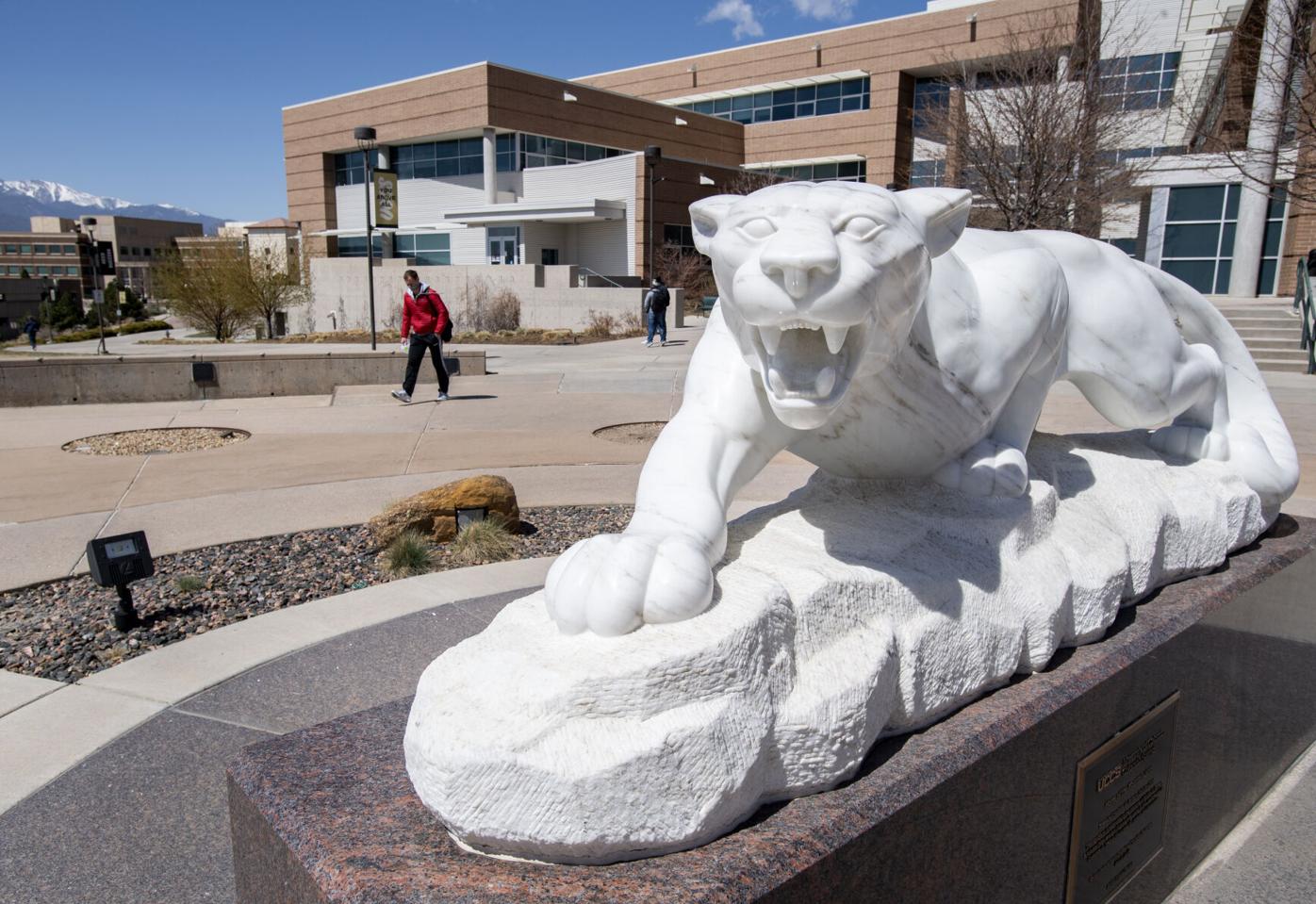UCCS among 50-plus universities facing federal racial discrimination probe as part of Trump’s anti-DEI campaign

FILE PHOTO: Students walk past the University of Colorado at Colorado Springs mountain lion sculpture next to the El Pomar Center on the Colorado Springs campus. The U.S. Department of Education announced Friday colleges nationwide would be investigated for diversity, equity and inclusion (DEI) practices.
Christian Murdock, The Gazette
WASHINGTON • More than 50 universities are being investigated for alleged racial discrimination as part of President Donald Trump’s campaign to end “diversity, equity and inclusion” programs that his officials say exclude White and Asian American students.
The list includes the University of Colorado Colorado Springs, according to a Friday news release from the U.S. Department of Education.
The announcement comes one month after the department issued a memo, warning America’s schools and colleges that they could lose federal money over “race-based preferences” in admissions, scholarships or any aspect of student life.
“Students must be assessed according to merit and accomplishment, not prejudged by the color of their skin,” Education Secretary Linda McMahon said in a statement. “We will not yield on this commitment.”
Most of the new inquiries are focused on colleges’ partnerships with the PhD Project, a nonprofit that helps students from certain groups get degrees in business with the goal of “diversifying” the business world.
Department officials said that the group limits eligibility based on race and that colleges that partner with it are “engaging in race-exclusionary practices in their graduate programs.”
“Our campus was notified late Thursday that the U.S. Department of Education is investigating a complaint regarding our College of Business’ use of a faculty recruiting platform, hosted by The PhD Project,” confirmed UCCS Chancellor Jennifer Sobanet. “At this point, we believe we have only used this platform to advertise open faculty positions, one tool of many our college uses to recruit qualified faculty. Like universities across the country, we use various platforms to seek and recruit the best teaching and research talent for our students.
“We are in the process of gathering additional information about this complaint and will comply with the request from the department in a timely manner. We want to say clearly, however, that UCCS does not discriminate in its recruitment or hiring practices.”
The group of 45 colleges facing scrutiny over ties to the PhD Project include major public universities, such as Arizona State and Ohio State and Rutgers, along with prestigious private schools like Yale, Cornell, Duke and the Massachusetts Institute of Technology.
A message sent to the PhD Project was not immediately returned.
Six other colleges are being investigated for awarding “impermissible race-based scholarships,” the department said, and another is accused of running a program that segregates students on the basis of race.
Those seven are: Grand Valley State University, Ithaca College, the New England College of Optometry, the University of Alabama, the University of Minnesota, the University of South Florida and the University of Tulsa School of Medicine.
The department did not say which of the seven is being investigated for allegations of segregation.
The Feb. 15 memo from the Education Department is a sweeping expansion of a 2023 Supreme Court decision that barred colleges from using race as a factor in admissions.
That decision focused on admissions policies at Harvard and the University of North Carolina, but the Education Department said it will interpret the decision to forbid race-based policies in any aspect of education, both in K-12 schools and higher education.
In the memo, Craig Trainor, acting assistant secretary for civil rights, said schools and colleges’ diversity, equity and inclusion efforts have been “smuggling racial stereotypes and explicit race-consciousness into everyday training, programming and discipline.”
The memo is being challenged in federal lawsuits from the nation’s two largest teachers’ unions. The suits said the memo is too vague and it violates the free speech rights of educators.
The Denver Gazette contributed to this story.




